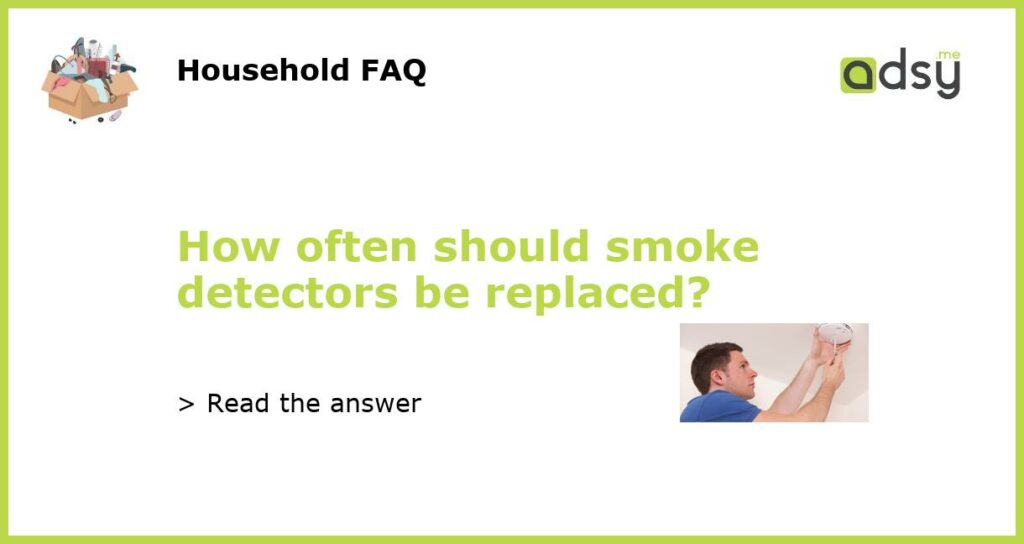How Often Should Smoke Detectors Be Replaced?
Smoke detectors are a crucial component of any home’s safety system. They provide early warning of potential fires, allowing residents to escape in time and enabling firefighters to respond quickly. But just like any other electronic device, smoke detectors have a limited lifespan. Over time, their sensitivity can diminish, and their ability to detect smoke and sound the alarm can become compromised. So, how often should smoke detectors be replaced?
Replacing Smoke Detectors Every 10 Years
The National Fire Protection Association (NFPA) recommends replacing smoke detectors every 10 years. This rule of thumb applies to both battery-powered and hardwired smoke detectors. Even if your smoke detector appears to be functioning correctly, it is essential to replace it after the recommended 10-year period.
Over time, the sensors and components within the smoke detector can deteriorate, leading to a decrease in performance. By regularly replacing your smoke detectors, you ensure that you have the most up-to-date technology and are maximizing your home’s fire safety.
Testing Smoke Detectors Regularly
While smoke detectors should be replaced every 10 years, it is crucial to test them regularly to ensure they are functioning correctly. The NFPA recommends testing smoke detectors at least once a month by pressing the “test” button on the device.
Regular testing allows you to confirm that the smoke detector’s alarm is loud enough to wake you up if a fire occurs during the night. It is also an opportunity to change the batteries in your smoke detector. Most smoke detectors use either 9-volt or AA batteries, and it is generally recommended to replace the batteries annually or as needed.
Knowing When to Replace Your Smoke Detector
In addition to the 10-year guideline, there are a few signs you should look out for that may indicate it is time to replace your smoke detector:
- If your smoke detector does not sound when the “test” button is pressed
- If the alarm sounds weak or muffled
- If the smoke detector consistently gives false alarms, despite no smoke or fire being present
- If your smoke detector does not respond when you change the batteries
- If the smoke detector makes chirping noises even after replacing the batteries
If you experience any of these issues, it is essential to replace your smoke detector immediately. Faulty smoke detectors can put your household at risk in the event of a fire.
Choosing the Right Smoke Detector
When replacing your smoke detectors, it is crucial to choose the right type for your home. There are two main types of smoke detectors: ionization and photoelectric.
Ionization smoke detectors are typically more responsive to flaming fires, while photoelectric smoke detectors are better at detecting smoldering fires. For maximum protection, it is recommended to have both types installed, either in separate devices or as a combination unit.
Additionally, there are now smart smoke detectors available that can connect to your home’s Wi-Fi network and send alerts to your smartphone in the event of a fire. These smart detectors offer additional features and convenience, but it is important to ensure they meet the necessary safety standards and comply with local building codes.
Smoke detectors are crucial for the safety of your home and family. Replacing them every 10 years, testing them regularly, and being aware of signs that indicate replacement is necessary will help ensure that your smoke detectors are functioning properly. By choosing the right smoke detector type and considering additional features like smart connectivity, you can enhance the fire safety of your home and have peace of mind knowing that you are prepared in case of an emergency.

